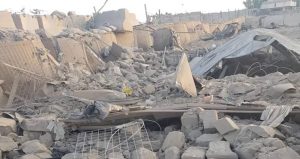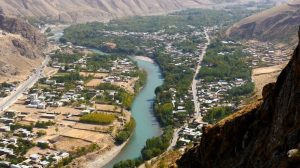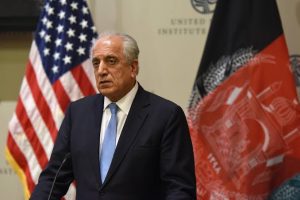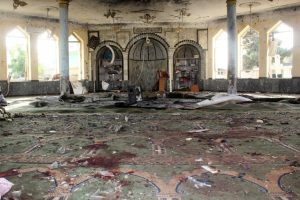Pakistan Not Involved in Yemen-Saudi War
KABUL: (Middle East Press) Pakistan’s Prime Minister Nawaz Sharif, after a meeting chaired on Thursday evening announced that a high-level delegation, including the defense minister and representatives from the military, would be heading to Saudi Arabia today to “assess the situation of Yemen and Saudi Arabia”.

KABUL: (Middle East Press) Pakistan’s Prime Minister Nawaz Sharif, after a meeting chaired on Thursday evening announced that a high-level delegation, including the defense minister and representatives from the military, would be heading to Saudi Arabia today to “assess the situation of Yemen and Saudi Arabia”.
This comes quickly on the heels of Saudi airstrikes inside Yemen targeting the Houthi movement, which is locked in a struggle with the Yemeni government.
Getting involved in what is essentially an internal conflict is unwise, but the prime minister seemed quite concerned with protecting Saudi Arabia’s regional integrity, any violation of which, he said, would evoke a “strong response” from Islamabad.
Earlier, there had been some talk of the Saudis wanting Pakistani soldiers involved in this conflict. Yet the government had maintained a largely unclear attitude, until yesterday’s developments.
The pressure on Pakistan was indeed huge to tag along in the anti-Houthi coalition.
Yet despite the heat from Riyadh and others, considering the regional situation and Pakistan’s own difficulty, neutrality would have been the wisest option.
Intervention in others’ internal affairs is always a tricky proposition. For example, how are we to justify coming to the aid of the Yemeni government while opposing, say, Bashar Al-Assad’s regime in Syria?
Also, considering the regional dynamics in play in Yemen, Pakistan needs to tread carefully. Saudi Arabia backs Yemen’s beleaguered President, Abd Rabbo Mansour Hadi, who also has American support, while the Houthi movement wants to enjoy liberty.
It seems that Yemen has become the latest regional theatre of the Riyadh-Tehran conflict. Egypt and Turkey have supported the Saudi intervention while the US is also involved.
The Houthis, on the other hand, have warned of a “wider war” in response to the Saudi action, while the Iranian government has called the airstrikes a “dangerous step.
It is difficult for Pakistan to play favorites with either Saudi Arabia or Iran — considering Pakistan’s strategic relationship with the former and geographical proximity with the latter. This is something both capitals need to understand.
Also, Pakistan is fighting its own internal war against militants. Can we realistically afford to dispatch troops overseas when the military is currently engaged in Fata and elsewhere?
If anything Pakistan should use its good offices to help achieve a diplomatic solution, rather than become a party in this war.





